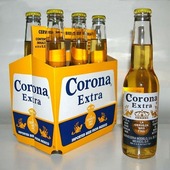Some of these signs could be registered because they do not fall within the prohibitions that trademark laws around the world normally contain, such as those words that violate morals or good practices or even those that constitute denigrating trademarks, as is the case in Argentina.
However, those trademarks that do not fall within the aforementioned prohibitions do not entail a real incentive for companies to register them or use them in the market either, since they could generate a totally inverse and detrimental result from the one sought by the owner of those trademarks.
I must emphasize that the analysis of this type of trademark is subjective, there are extreme cases where there would be no doubt about what pejorative is, but there are other cases in which there may be different opinions about what it is and is not pejorative. In addition, these valuations may differ depending on the territory in which we are located, even change over time, and depend on the context or the goods or services for which the TM is used.

Different is the case for a good number of TMs that have become pejorative due to the poor quality of products or services, and not having been able to reverse this new status with advertising strategies, they have had to change their TM names. One of the functions of a TM is to guarantee a certain quality, if that is no longer viable, it is better to change.
A remarkable case in Argentina is the situation of the word “BOLUDO” which colloquially means fool or silly, but over time this word has begun to be used among friends or acquaintances without a negative connotation, jokingly or even affectively, varying according to the modulation when pronouncing it. Abroad this last conceptual sense predominates, the word “BOLUDO” went from being pejorative to being a typical and distinctive “favorable” filler of many Argentines, which is why there are many trademarks in several countries that contain said word within their trademark sets.
Finally, I must address the impact of war on TMs. Russia’s invasion of Ukraine generated a negative impact on the TMs of distinguished Russian goods, which should be circumstantial at least while the attacks last. These TMs that have become pejorative will definitely affect the sales of Russian products worldwide. To counteract these negative effects of the war, the STOLICHNAYA vodka company decided to change the name of its TM to STOLI in this way diminishing the Russian conceptual content of the TM, in addition they published that from now on none of the ingredients that make up the vodka will come from Russia.
On balance, pre-existing pejorative TMs can be foreseen and avoided with a good search and previous analysis carried out by IP specialists, as well as it can be avoided that our TM becomes pejorative because quality is badly affected. For unforeseen cases or force majeure such as a war that do not depend on companies, you can only react quickly and implement a good advertising and marketing strategy, if it does not work, you will have to change the TM and adapt to new times.
